A confrontation that centres on the Cargill meat-packing plant in High River, Alberta appears on the verge of boiling over.
The fight pits the U.S.-based multinational against some 2,000 workers–most of them Filipino–who are being told they have to return to work on Monday at a facility they have long said is unsafe in the age of COVID-19.
The plant at the centre of the Canadian storm sits 60 kilometres south of Calgary.
In normal times, it supplies about a third of the meat consumed in Canada.
Currently, it is home to the largest single-site breakout of COVID-19 in the country.
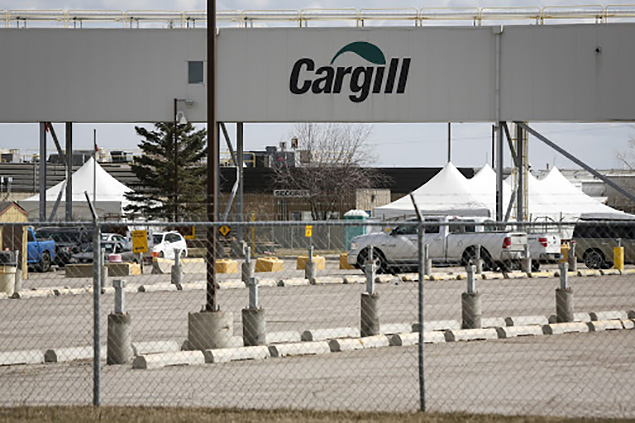
The High River facility is home to the largest single-site breakout of COVID-19 in the country. (THE CANADIAN PRESS/Jeff McIntosh)
As of Wednesday afternoon, the plant had been linked with more than 1,200 COVID-19 cases, 821 of whom are workers.
Seven workers are in hospital, including five in intensive care, according to the union that represents workers at the plant, the United Food and Commercial Workers Local 401.
Nearly two weeks ago, Cargill shut the plant down temporarily after one of its workers–a 68-year-old woman–died from COVID-19.
On Wednesday, Cargill stirred the pot.
In a move the union called “incredibly concerning,” the company announced it was resuming operations–by bringing back one shift this coming Monday and adding
Returning employees, the company said, must be healthy, and must not have had contact with anyone who has COVID-19 for 14 days.
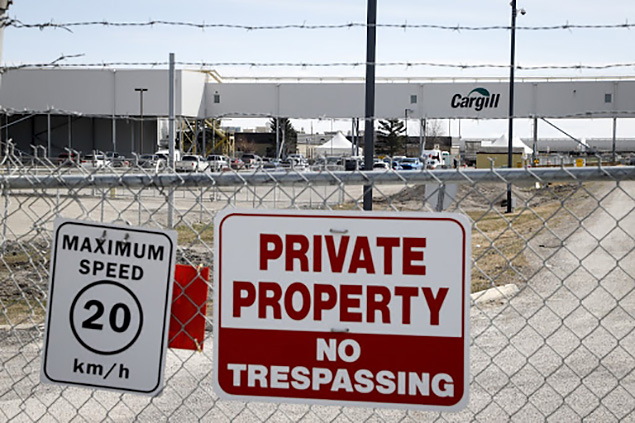
Cargill shut the plant down earlier this month after one of its workers–a 68-year-old woman–died from COVID-19. (THE CANADIAN PRESS/Jeff McIntosh)
During the shutdown, Cargill said, it had implemented additional safety measures in an effort to reduce the spread of the coronavirus.
They included erecting additional barriers in bathrooms and reassigning lockers to allow for necessary spacing between employees.
It also conducted an “extensive COVID-19 sanitation process.”
“We look forward to welcoming our employees back and are focused on our ongoing commitment to safety,” Cargill said in a statement.
The announcement came a day after Alberta labour leaders called for a criminal investigation and public inquiry into Cargill and another meat processing plant, JBS in Brooks, saying the JBS facility should be closed for at least two weeks.
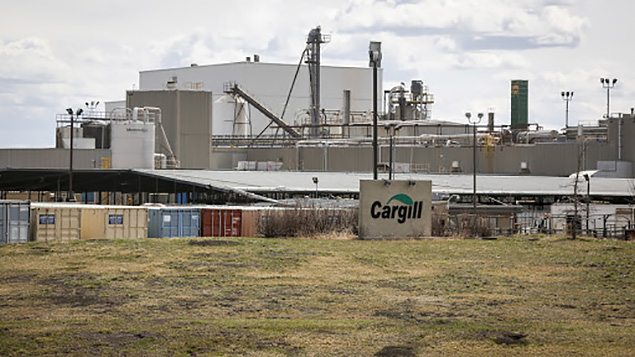
The plant processes about 4,500 head of cattle daily. (THE CANADIAN PRESS/Jeff McIntosh)
On Wednesday, the union said it was “dumbfounded” by the move, had not been consulted, nor provided with credible reassurance that it was safe to reopen.
Spokesman Michael Hughes said the union was exploring legal action to make sure the plant remained closed.
“The reopening of the plant is rushed, it’s inappropriate and it puts not only our members, but Albertans, at risk,” Hughes said.
“There are a number of options on the table and we are pursuing everything that’s available to us to stop that plant from opening up on Monday.”
Hughes said the thought of workers having to return to their duties, without reassurance from operators that a similar outbreak wouldn’t happen again, “is just maddening.”
About 70 per cent of the approximately 2,000 workers at the plant are Filipino, some of whom are temporary foreign workers (TFWs) and others who are permanent residents.
Many have said they are growing tired of being blamed for the COVID-19 breakout at the plant that processes about 4,500 head of cattle per day.
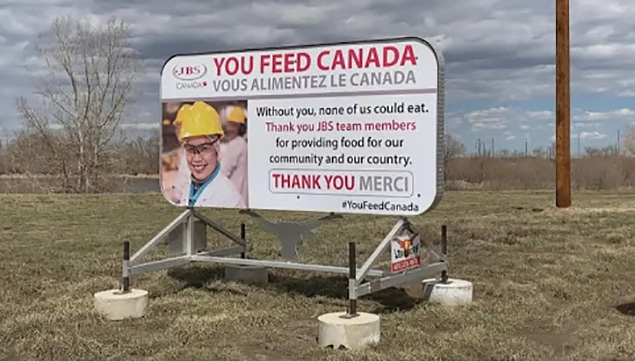
A sign outside the JBS meat-processing plant in Brooks, Alta., thanks workers for continuing to show up during the pandemic. Hundreds of workers at the plant have now contracted COVID-19. (CBC)
The Cargill plant and the JBS plant in Brooks, which has 276 cases of COVID-19 among its workers, supply more than two-thirds of Canada’s beef.
At his daily media briefing Wednesday in Ottawa, Prime Minister Trudeau declined to say whether his government would follow Trump’s order to keep U.S. meat-processing plants open but stressed that workers’ safety is a priority.
“We’re watching with interest and concern some of the issues facing meat producers and the supply chain across the agricultural industry,” Trudeau said.
“We need to make sure that those supply chains can keep functioning, but we also need to make sure that the people who work in those supply chains — and will continue to need to work in difficult circumstances over the coming weeks and months as we continue to battle COVID-19 — are kept safe.”
(With files from CBC News (Joel Dryden, Catharine Tunney, Thomson Reuters), The Canadian Press (Bill Graveland)
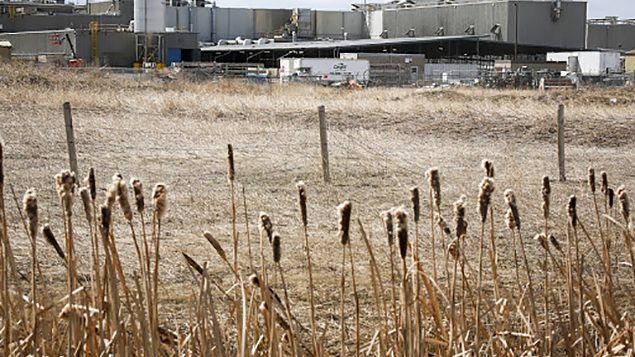






For reasons beyond our control, and for an undetermined period of time, our comment section is now closed. However, our social networks remain open to your contributions.